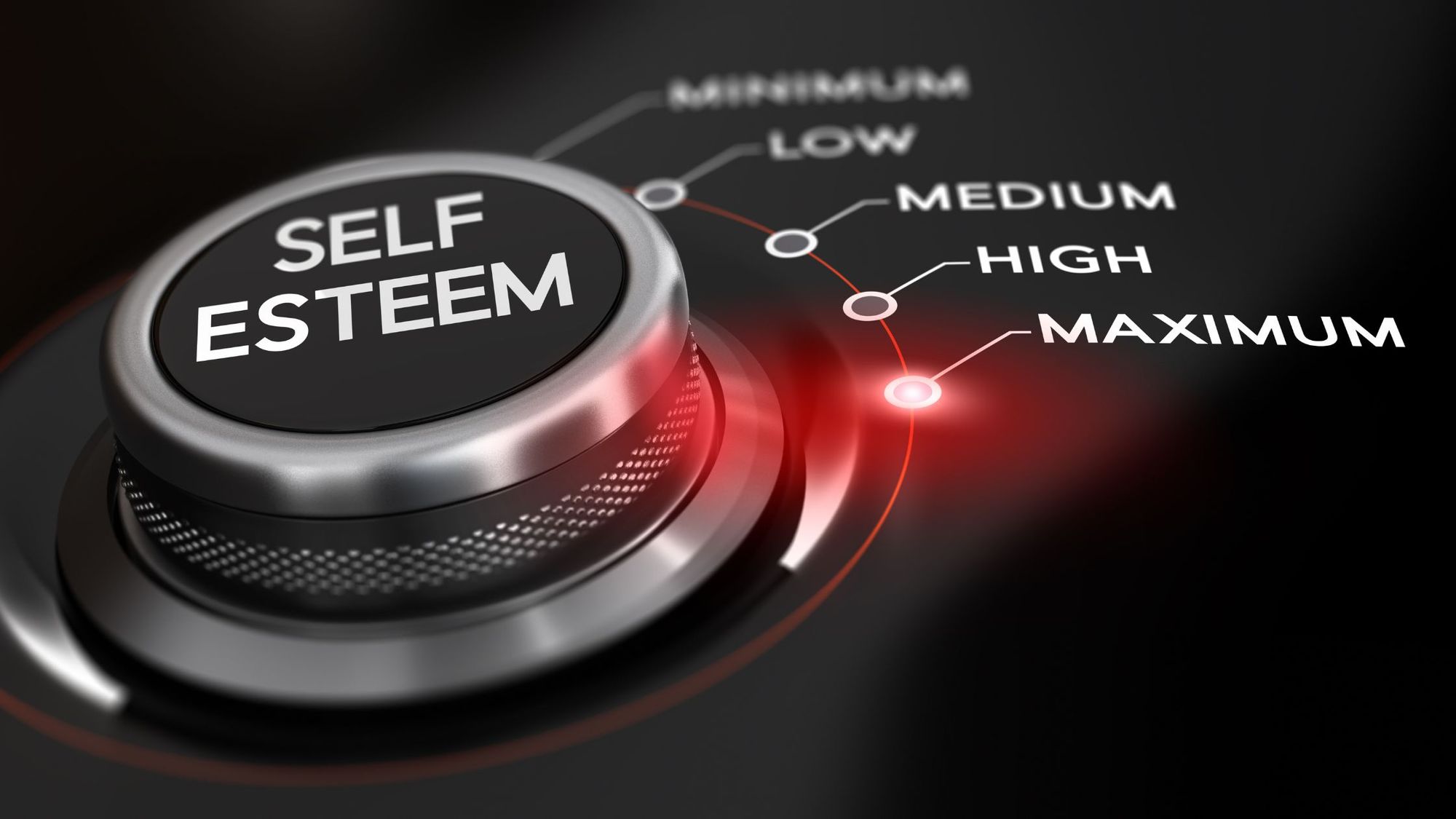
Valuing yourself more and loving yourself more can change your life. When you figure out how to build your self-esteem, and you feel confident of your worth, you’re on the right track towards mastering self-love.
Self-love is incredibly important because your love for yourself allows you to both give and receive love better, from the people you care about.
Valuing yourself instills standards for how you deserve to be treated, and valuing yourself teaches others to value you as well. Essentially, if you want to be valued, you have to lead by example by valuing yourself.
We all deserve to feel good about ourselves, and it can feel frustrating to see other people around you appearing so confident and carefree, when you have lots of work to do to build your self-esteem. The reality, however, is that many of the people who appear to have high confidence are probably lacking self-esteem too, and many of them mask it so that they can give off the illusion of confidence and self-worth.
The idea of faking it until you make it is nothing but a bandaid on a deep-rooted problem, and low self-esteem is a pandemic that has been plaguing us for decades. In this guide, we’re going to give you some tips on how to build your self-esteem up so that you can learn to love yourself but also see how much you’re really worth (hint: it’s a lot).
The Meaning of Self-Esteem
Self-esteem refers to our opinions of ourselves and our faith (or lack thereof) in our abilities. The amount of self-esteem we have tends to be influenced by things like our support system, our confidence, identity, and sense of belonging. People can have high self-esteem, low self-esteem, or even find themselves sitting in the middle.
Valuing yourself requires high self-esteem, as does real self-love.
When you have low self-esteem, it means that you lack confidence in yourself and your abilities, you struggle to love yourself. It can mean you feel as though you don’t belong with your family and friends, and you have a sense of not being good enough. You might have doubts about your sexuality or identity, and it can make you feel lost as a person.
Research has shown that low self-esteem can be caused by events in our lives such as trauma or abuse, but also by the manifestation of mental health issues like anxiety and depression.
Those who have high self-esteem are confident in themselves and their ability to face challenges head-on. They are certain of who they are and feel comfortable in their own skin, giving them more confidence. They feel as though they belong, and their sense of identity is bulletproof.

Valuing Yourself: How to Improve Your Self-Esteem
It is important to remember that you can’t improve your self-esteem overnight. It takes time, and you might find that it can be a challenging journey. Regardless, we have some great advice to help you start out so that you can learn to love yourself more, and start truly valuing yourself:
Learn to be Kind to Yourself
You have to remember to be kind to yourself. Before you chastise yourself or tell yourself that you aren’t good enough, take a moment and ask yourself if you would tell your best friend the same thing. Chances are that you wouldn’t talk to your best friend like that, so why are you talking to yourself like that? Try to challenge negative thoughts when they arise, so you can combat negative self-talk.
Valuing Yourself by Being Proud of Yourself
When you accomplish something, don’t hold back in feeling proud of yourself. It doesn’t matter what you did; if it was something you’ve been wanting to do or have been too afraid to do and you did it, well, you deserve to be proud of yourself. Self-validation is an important step toward valuing yourself, and it’s one of the stepping stones to learning how to be kinder to yourself.
Get to Know Yourself Better
Getting to know yourself better, for example by taking a DNA test and learning all about what talents lie in your DNA, can provide you with a stronger sense of self. Having a good sense of self and understanding who you are is something that definitely helps improve your self-esteem. Getting to know yourself better will help you know your worth.
Everyone Makes Mistakes: Don’t Have Impossibly High Standards For Yourself
You’re only human, and you need to stop holding yourself to impossibly high standards. Everyone makes mistakes, everyone gets things wrong, and you are no exception to that rule. It doesn’t mean you are worth any less or you deserve punishment of any kind. All it means is that you need to learn to accept that it’s ok to get it wrong and figure out how to avoid it next time.
Stop Comparing Yourself to Others
Everyone is on their own path, and none of them is identical to yours. You might see friends and colleagues who are already settled down, have that promotion and have decided on their career path, and you haven’t. That’s ok. We all move at our own speeds, and when you start to focus on your own success instead of other people’s, you also start to see your own growth.
Focus on the Things You Can Change
Not everything can be fixed or changed, and that’s ok. Stop focusing on the aspects of your life that you have no control over and start looking at the parts that you can change. When you start making these little alterations in your life, things will start to feel more in your control, and it helps to build your confidence. Sometimes, it even helps the things you can’t change, change.
Do What Makes You Happy
You have to learn to put yourself first sometimes, and that means doing things that make you happy. Carve some time out each week just for you, and put focus on the things that bring you joy in life. Take up new hobbies, change your job, or even go on a trip. Whatever is within your means and will make you feel good – do it.
Celebrate the Little Things
Maybe you baked something or cooked for the first time in a while. Maybe you finally did the laundry or found the energy to get a load of bills paid. No matter how small, celebrate the little things you have done for yourself. Celebrating the little things helps us to feel proud of ourselves and build that sense of personal success, which leads to more confidence.
Set Healthy Boundaries in Relationships
People with low self-esteem tend to be people pleasers, and this means there are little to no boundaries in their relationships. You need to be the change you want to see and set healthy boundaries with the people you love. Stand your ground, put yourself first, and say no sometimes. The only person you really need to please is yourself.

Cut Out Toxic People
It doesn’t matter if they are friends, family, or your significant other; if you have toxic people in your life, they are only going to bring you down and make you feel worse about yourself. Allow yourself to breathe and surround yourself with people who love and support you, who believe in your abilities as a person and who encourage you to grow and thrive.
Forgive Yourself
The most important thing is learning how to forgive yourself. It’s hard because you probably have a lot of guilt in your life, but the truth is that most of those feelings are things you shouldn’t even feel guilty about. Other people have forgiven you, and now it’s time for you to forgive yourself. Move on, and allow yourself to grow as a person and become happier in life.
To Conclude
Low self-esteem can be difficult to combat, but the journey to loving ourselves is life-long. We are our own worst enemies, but we can also be the best friend we’ve ever had. It’s all about learning to see ourselves the way the people who love us do – as good people who are absolutely worth love and respect.
We hope the advice in this guide has been able to help you start building back your confidence. We know it’s not going to be a quick or easy path to take, but we also know that the results are going to be worth it (just like you).
Reference:
- Frontiers, Low Self-Esteem and Its Association With Anxiety, Depression, and Suicidal Ideation in Vietnamese Secondary School Students: A Cross-Sectional Study:
https://www.frontiersin.org/articles/10.3389/fpsyt.2019.00698/full






